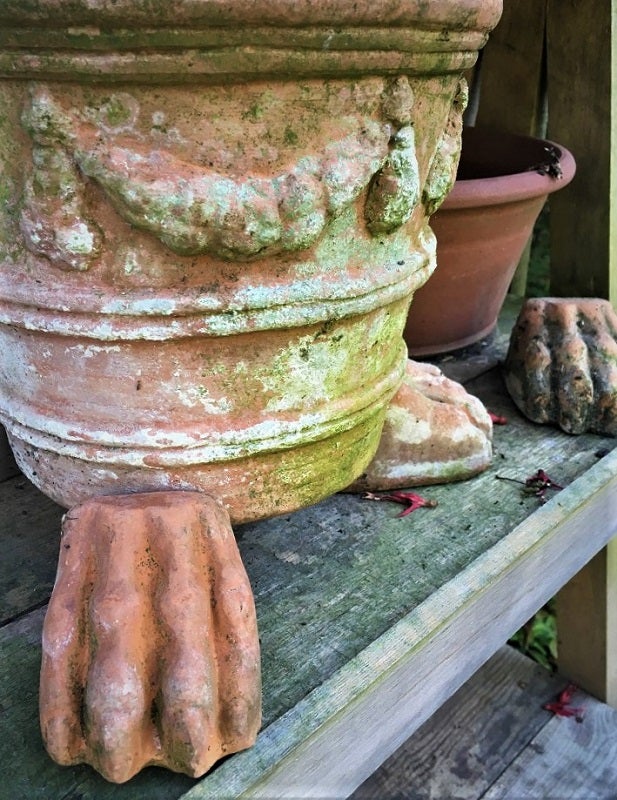Tackling garden pests
Published 1:48 pm Saturday, March 28, 2020
|
Getting your Trinity Audio player ready...
|
By Sheri Bethard
Texas Certified Master Gardener, Orange County Master Gardeners
Spring is definitely here, we have our gardens started, veggie and flower, now, those pesky garden pests will start showing up damaging all the work you have done. So, let’s start watching out for them before they get beyond your simple control. If the infestation is small, a blast from your water hose can take care of ridding them and you can go about your business. But, if the infestation is large, there are other methods you can take as I list them below along with the pest. Make sure they are healthy and stress-free to avoid problems.
Aphids. The adult is about 1/10” is small soft-bodied pear-shaped with long legs and antennae in all colors with the most common being green. They produce a sticky honeydew excretion which is usually what you see on your plants. They reside on stems and the bottom of leaves. In warm weather, they may complete a generation in less than 2 weeks. To control aphids naturally, attract green lacewings by planting crimson clover, fennel, bachelor’s button, alyssum and daisies. Lady beetles, praying mantids and braconid wasps will also come. Organic control, garlic-pepper tea or liquid seaweed, orange oil or other biological oil sprays can be used. Avoid heavy applications of nitrogen fertilizer.
Mealybugs They are white, fuzzy-looking, small, oval-shaped and are about ¼” long. They are on stems and the bottom of leaves. They look like little bits of cotton on your plants. Birds and lizards eat them. Organic ways to control Mealybugs are attracted parasitic wasps, lady beetles, lacewings or the Mealybug Destroyer. Other things you can do are the same as with the Aphids along with using a Horticultural Oil or Neem Oil. A short story about Mealybugs – One evening I noticed Mealybugs on my Gaura and another bug looked like the Mealybugs but larger. The Gaura was covered with Mealybugs along with this other bug. I thumbed thru my Texas Bug Book and found the larger bug was the Mealybug Destroyer. The next morning the Gaura was cleaned, yes cleaned of all the Mealybugs and the Mealybug Destroyer was no longer around. So, watch for it when looking at Mealybugs.
Scale. Most of the scale everyone is familiar with are the hard “bumps” you see on the stems of your plants. The adult scale attaches themselves to bark, shoots or foliage. Soft scale-like garden crops while armored scale (hard-bodied) prefer orchard crops. The range for 1/10” to 1/3” in size and varies in colors. Scale suck the sap out of the plants. Natural controls include the vedalia lady beetle, parasitic aphids and parasitic wasps. Organic control is a spray with Dormant Oil in the cooler months or Horticultural Oil all year. Another story from my garden – several years ago I noticed these little white “lines” about 1/10” long all over my Jade Plant. At first, I thought they were Aphids and treated for them getting rid of a few, but there still was a lot. Then they moved to my Hibiscus, so I took pictures and enlarged them so I could try to determine what the pest was. That was when I noticed a few Scale scattered around. Researching, I found it was the Euonymus Scale. All the little white “lines” are actually the male and they appear in the greatest numbers on a plant while the female is dark-brown,oyster-shelled shaped and found on the stems. Using Horticultural Oil spray is the best control I have found for this scale. I have to spray fairly often as the young scale is present from May thru Sept.
If you have any horticultural or garden questions, please contact our hotline at 409 882-7010 Tuesday and Thursday 10 – 2 or send us an email via our Contact page at https://txmg.org/orange.
We are still taking applications for our upcoming Master Gardener class. The date to start is pending at this time due to the current situation. I will announce the date in my article when we have a new date to start the class. Applications can be obtained on our website by clicking on “How to Become a Master Gardener”. As with the class, our April meeting is pending at this time.
A Special Thank You to all of the people of Orange and the surrounding area who came to our Annual Bloomin’ Crazy Plant Fair and made it the most successful one ever. We appreciate your patience in waiting to enter the pavilion as we were trying our best to practice Social Distancing and keep everyone as safe as possible during this uncertain time. We look forward to serving you with your horticulture needs in the future with programs to help make gardening easier for you. If you have any special program you would like to see presented, please use our Contact page to let us know and we will see what we can arrange. We are always looking for input from the community.






